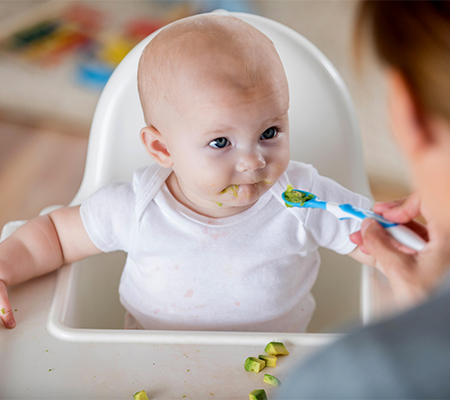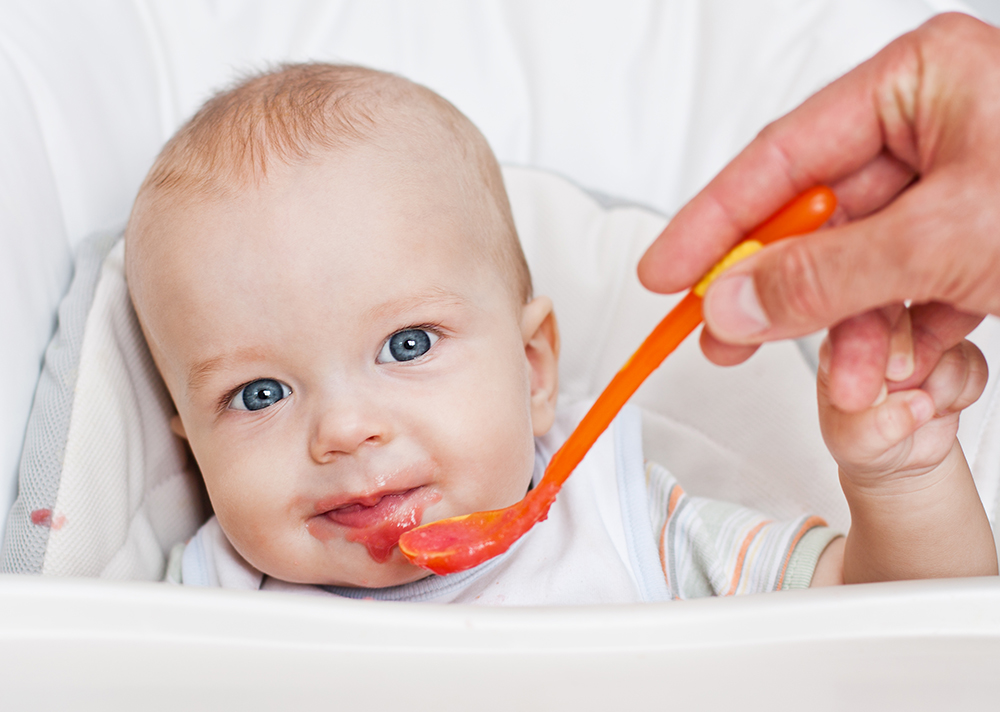botulism in babies timeline
Consultation Treatment and Testing Steps Infant botulism is a medical emergency. Infants who acquire botulism range in age from six weeks to nine months with the peak incidence occurring at two to three months of age.

Babydoc Club Irl Honey Can Be Dangerous For Baby Delicious In Porridge But This Sweet Treat Has Been Linked To Rare But Serious Infant Botulism The Fsai Food Safety Authority
Infant botulism occurs most often in infants 6 months.

. The disease results after spores of the bacterium Clostridium botulinum or related species are swallowed temporarily colonize an infants large intestine and produce botulinum neurotoxin. Infants who acquire botulism range in age from six weeks to nine months with the peak incidence occurring at two to three months of age. Botulinum toxin causes weakness and loss of muscle tone because it blocks the nerve endings ability to signal the linked muscle to contract.
It can affect babies up to age 1 but is most common between three weeks and six months. Risk factors include swallowing honey as a baby being around contaminated soil and having less than one stool per day for a period greater than 2 months. The youngest reported patient was 2 weeks and the oldest was 12 months.
Infant botulism usually affects babies who are 3 weeks to 6 months old. It may occur as early as early as 6 days and as late as 1 year. Bacteria from the spores can grow and multiply in a babys intestines producing a dangerous toxin.
Infant botulism most commonly affects babies 3 weeks to 6 months old but babies are at risk until they are 1 year old. Infant botulism usually affects babies who are 3 weeks to 6 months old. What is infant botulism IB.
About 90 percent of infants with botulism are younger than. Babies are at risk of infant botulism until they reach about 1 year of age. Botulinum spores and subsequent.
From 1973-1996 724 cases of food-borne botulism 103 cases of wound botulism and 1444 cases of infant botulism were reported. Infant botulism is the infectious intestinal form of botulism which results when swallowed spores of a particular bacterium Clostridium botulinum colonize the babys large intestine and produce botulinum toxin in it. Different from foodborne botulism caused by ingestion of pre-formed toxins in food it occurs when infants ingest C.
Do not wait for laboratory confirmation to initiate consultation or treatment. Infant botulism results from the ingestion of the C. Infant botulism occurs mostly in infants under 6 months of age.
Unlike food-borne botulism infant botulism is caused by ingestion of spores not by ingestion of a preformed toxin. Overview of Clostridial Infections Clostridia are bacteria that commonly reside in the intestine of healthy adults and newborns. Infant botulism is an intestinal toxemia.
Infants who acquire botulism range in age from six weeks to nine months with the peak incidence occurring at two to three months of ageAbout 90 percent of infants with botulism are younger than. The condition can occur in. The incubation period is 2-4 weeks.
Botulinum spores which germinate into bacteria that colonize in the gut and release toxins. Causes of Infant Botulism Babies can get. Infant botulism also referred to as floppy baby syndrome was first recognized in 1976 and is the most common form of botulism in the United StatesInfants are susceptible to infant botulism in the first year of life with more than 90 of cases occurring in infants younger than six months.
Mean age of onset is 13 weeks with a range from 1 to 63 weeks. The youngest reported patient was 2 weeks and the oldest was 12 months. These bacteria are harmless to older kids and adults.
Temporary intestinal colonization by. Unlike food-borne botulism infant botulism is caused by ingestion of spores not by ingestion of a preformed toxin. Infant botulism is a potentially life-threatening infection that causes muscle weakness.
The source of the spores is usually unknown in most cases although some have been traced to. The neurotoxin binds to cholinergic nerve terminals and cleaves intracellular proteins necessary for acetylcholine release resulting in bulbar. Infant botulism is a rare but serious gastrointestinal condition caused by exposure to Clostridium botulinum C.
Thats because their mature digestive systems can move the toxins through the body before they cause harm. Other signs of autonomic dysfunction usually present early as. Ad Find out what causes Botulism and how to remedy the symptoms today.
Before their first birthday their digestive system has not become developed enough to. Infant botulism occurs most often in infants 6 months. In most adults and children older than about 6 months this would not happen because.
Please report any suspect infant botulism case to your local health jurisdiction through appropriate channels. Thats because their mature digestive systems can move the toxins through the body before they cause harm. Title 17 California Code of Regulations CCR 2500 2593 26415-264320 and 2800-2812 requires that healthcare providers report known or suspected cases of infant botulism to the jurisdiction in which the patient resides.
The peak age of incidence is 2-4 months. Infant botulism occurs mostly in young infants between 6 weeks and 6 months of age. These bacteria are harmless to older kids and adults.
Constipation is the usual presenting symptom often preceding motor function symptoms by several days or weeks. Spore-forming obligate anaerobe Affects infants less than 1 year of age A rare disease but most common form of human botulism in the US for more than 30 years Symptoms include generalized muscle weakness with airway and swallowing difficulties. About 90 percent of infants with botulism are younger than.
It develops in infants who eat food containing spores of Clostridium botulinum bacteria.

5 Tips To Transition Your Baby To Solid Food Shine365 From Marshfield Clinic

Nourishing A Growing Baby The Weston A Price Foundation

Introducing Solids A Month By Month Schedule Free Printable Baby Food Recipes Baby Fruit Baby Feeding

How To Start Your Baby On Solids An Infographic Smart Nutrition With Jessica Penner Rd Baby Food Chart Baby Food Recipes Smart Nutrition

Four Infants Hospitalized For Botulism After Using Pacifier Funny Pictures For Kids Pacifier Infant

Babydoc Club Irl Soothers Loved By Many Babies Parents But Don T Be Tempted To Dip Baby S Dummy In Anything Sweet Such As Sugar Honey Or Medicines Products Containing Sugar As It
When Do Babies Eat Solid Food Happiest Baby

Babydoc Club Uk New Parents Did You Know Sweet Honey Can Be Harmful For Baby Yes It S Yummy In Porridge But Has Been Linked To Rare But Serious Infant Botulism The

From Milk To Solids Baby Food Guidelines For The First Year Baby Food Timeline Baby Food Chart Baby Food By Age

When Can Babies Eat Cheerios Sneakpeek

9 Month Old Baby Feeding Schedule What And When Can Babies Eat At 9 Months

Is Your Baby Constipated Babycenter

When To Introduce Solids To Your Baby To Reduce Food Allergies

What Parents Need To Know About Botulism

Baby Teeth Frequently Asked Questions Parents



